Unconquered
Brief Synopsis
Cast & Crew
Cecil B. Demille
Gary Cooper
Paulette Goddard
Howard Da Silva
Boris Karloff
Cecil Kellaway
Film Details
Technical Specs

Synopsis
In 1763 at the Old Bailey in London, Abigail Hale is sentenced to death for helping her brother fight the press gang which was attempting to forcibly press him into service at sea. To avoid hanging, Abby agrees to fourteen years of indentured service in the colonies and boards a ship bound for Norfolk, Virginia. The ship's brutish captain, Martin Garth, who is transporting munitions for the Indians of the Ohio Valley, bids for Abby, but is outbid by Captain Chris Holden from Virginia. When the ship reaches Norfolk, Chris, who is about to be married, grants Abby her freedom. After learning that an edict has forbidden the sale of guns, Garth buys every indentured servant on the ship, including Abby, who thinks Chris has double-crossed her. Meanwhile, Chris's fiancée Diana leaves him for his brother. In Peakestown, colonial leaders who are planning to seize Pittsburgh from the Indians meet with Chris and Garth. Garth, who is a blood brother to Guyasuta, the chief of the Senecas, and has married Guyasuta's daughter Hannah in order to trade the Indians guns for furs, claims the Indians gave him the land deeds to Pittsburgh. Under Pontiac, chief of the Ottawas, Indians from the Ottawa, Seneca, Delaware, Shawnee and other tribes, meanwhile, have been circulating a war belt to enlist the tribes to fight the colonists and drive them to the sea. Chris's friend, John Fraser, found the belt on a dead Indian and gave it to him. Since the colonialists have no army, Chris offers to carry peace belts to the Indians. Chris's two scouts are quickly killed by Indians sent by Garth to steal the peace belts. Chris arrives at Fort Pitt, where Abby is a barmaid in Garth's saloon, and she helps him retrieve the belts. Armed with two pistols, Chris makes his escape with Abby to John's blacksmith shop. At a ball at Fort Pitt in honor of King George III's birthday, Garth exposes Abby to Captain Simeon Ecuyer, who was at her trial, and Chris lays claim to her in order to force Garth into a duel. Ecuyer determines Garth to be Abby's legal owner and, unaware that Garth is a traitor, forbids Chris from pursuing him and Abby. When Indian envoys alert Garth that the war has started and that they need weapons, he places Abby in the care of the Indians and goes to Guyasuta's camp, where plans are being made to burn the forts after the settlers are convinced to surrender. Meanwhile, at Fort Pitt, a widowed settler enters the ball carrying her wounded daughter and reports an Indian massacre. Ecuyer orders Chris to clear the town of people and burn it down, but he instructs John to carry out the order so that he can save Abby. Garth leaves Guyasuta's camp for Fort Pitt, forsaking Abby, who is tortured and burned by the Senecas. In a cloud of smoke, Chris arrives and convinces Guyasuta and Sioto, his medicine man, that his compass is the "medicine of death." He and Abby escape, but are pursued in canoes. By going over a mammoth waterfall, Abby and Chris convince the Senecas that they are dead, and they escape on foot to the outskirts of Venango to a cabin belonging to a family that has been killed. In Venango, all the settlers have been massacred except an old man, who warns Chris and Abby not to be tricked by the Indians into surrender. Meanwhile, Garth advises Ecuyer and Captain Steele, the officer in command, to raise a white flag at Fort Pitt, and relates Guyasuta's promise that all will be set free. Chris warns the settlers not to surrender, but is court-martialed for defying Ecuyer's earlier orders and sentenced to death. Abby agrees to stay with Garth of her own volition if he will free Chris, and Hannah, who had earlier arranged for Abby to be kidnapped by the Indians because she was jealous of Garth's interest in her, sacrifices herself by crossing the moat disguised as Chris and taking gunfire meant for him. Chris arrives at the fort at Bushy Run, held by Colonel Henry Bouquet and his 42nd Infantry, hoping his garrison will rescue Fort Pitt, but a quarter of Bouquet's men have been massacred. As the Indians begin their assault on Fort Pitt, Chris gathers a handful of the 42nd's surviving infantrymen and wagons full of dead soldiers and marches on Fort Pitt. The Indians, believing the garrison is alive, retreat. Chris kills Garth before he can escape with Abby, and is pardoned by Ecuyer. Ecuyer then marries Abby and Chris and orders Chris to go west with the frontier.

Director

Cecil B. Demille
Cast

Gary Cooper

Paulette Goddard
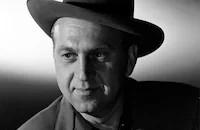
Howard Da Silva
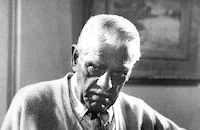
Boris Karloff

Cecil Kellaway

Ward Bond
Virginia Campbell

Katherine Demille
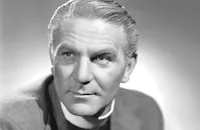
Henry Wilcoxon

Sir C. Aubrey Smith
Victor Varconi

Virginia Grey

Mike Mazurki
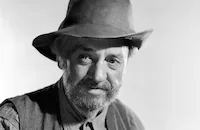
Porter Hall
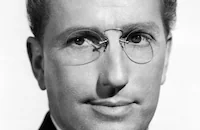
Richard Gaines
Gavin Muir

Jane Nigh

Alan Napier
Marc Lawrence
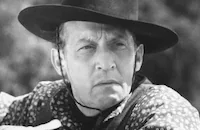
Raymond Hatton
John Mylong
George Kirby
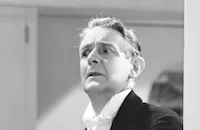
Leonard Carey
Frank Wilcox
Davison Clark

Griff Barnett
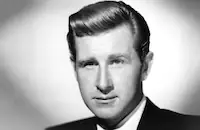
Lloyd Bridges
Oliver Thorndike
Nan Sunderland
Rus Conklin
Iron Eyes Cody
Julia Faye
Paul E. Burns
Mary Field
Diane Wadelow
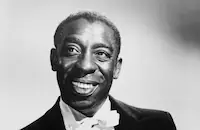
Clarence Muse
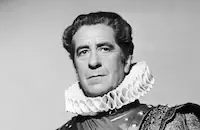
Robert Warwick
Sanders Clark
Matthew Boulton
Willa Pearl Curtis
Jeff York
Frank Moran
Olaf Hytten
Alec Harford
Fred Zendar
Dick Alexander
William Meader
Wallace Earl

Barbara Morrison
Lloyd Whitlock
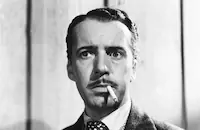
Boyd Irwin
George Magrill
Budd Fine
Valmere Barman
Kenneth Gibson
Carl Saxe
Sam Ash

James Flavin
Al Murphy
Harlan Miller
Fred Zendar

Byron Foulger
Joe Whitehead
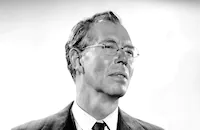
Walter Baldwin
Bill Wallace
Jasper Palmer
Jim Nolan
Jim Drum
Don Lynch
Bill Murphy
Ted Mapes
Gil Sullivan
George Anderson
Trevor Bardette
Chuck Hamilton
George Bunny
James Carlisle
Llorna Jordan
June Harris

Ethel Wales
Besse Wade
Betty Farrington
Jane Everett
Donya Dean
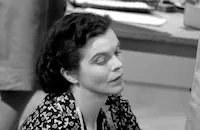
Dorothy Adams
Syd Saylor
John Harmon
Eddie Dunn
Bill Sundholm
Francis Ford
Francis Mcdonald
Guy Wilkerson
Jack Clifford
John Northpole
Bob Kortman
Ray Spiker
June Harris
Jack Weatherwax
Earle Hodgins
Alan Bridge

Hope Landin
Richard Reeves
Si Jenks
Crane Whitley
Robert Barron
Louise Saraydar
Eric Alden
Frank Hagney
Hugh Prosser

Ray Teal
Edgar Dearing
Noble Johnson
Chief Thundercloud
Sally Rawlinson
Larry Thompson
Russ Clark
John James
Bill Hall
John Merton
Constance Purdy

Geraldine Wall
Donna Courter

Greta Granstedt
James Horne
Ted Allan
David Ralston
Gilbert Wilson

Lex Barker
Gus Taute
Clancy Cooper
Fred Coby

Lee Phelps
Charles Victor
Jerry James
Larry Lawson
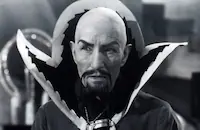
Charles Middleton
Ottola Nesmith
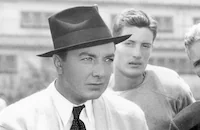
Fred Kohler Jr.
Forrest Taylor
Jack Lee
Karolyn Grimes
Beatrice Gray
Fred Datig Jr.
Christopher Clark
Buddy Roosevelt
Dwight Butcher
Bill Haade
Erville Alderson
John Mallon
Mike Lally
Charles Sullivan

Jeff Corey
Len Hendry
Eugene Eberle
Calvin Ellison
Bert Moorhouse
Mike Kilian
Carl Mathews
William Bailey
Lane Chandler

John Miljan
J. W. Cody
Chuck Hamilton
Maxine Chevalier
Claire Dubrey
Mimi Aguglia
Nenette Vallon
Inez Palange
Rose Higgins
Chabing
Charmienne Harker
Roderic Redwing
Jay Silverheels
Vaughn Anthony
Bob Kortman
Albert A. Cavigga
Belle Mitchell
Fernanda Eliscu
Boyd Davis
Charles Flynn
Jack Overman

Harry Cording
Bill Hunter
Jack Pennick
Allan Ray
Henry Mowbray
John Goldsworthy
Montague Shaw
Crauford Kent
Gordon Richards
Arthur Gould-porter
Colin Kenny
Leyland Hodgson
Arthur Blake
Leslie Denison
Dick Elmore
Bob Baughman
Anna Lehr
Gertrude Valerie
Crew
Glen Alden
Katherine Arruda
Max Asher
Fred Barber
Anne Bauchens
Claire Behnke
Claire Behnke
Charles Bennett
Guy Bennett
George Bertholon
Jake Boumeister
Phil Boutelje
Vincent Bratton
Bud Brill
Robert Brower
Russ Brown
Roy Burns
Frank Caffey
Joe Caplan
Maybelle Carey
Gladys Carley
James Cassin
Julie Cockerill
Iron Eyes Cody
Iron Eyes Cody
Florence Cole
Carl Coleman
Sam Comer
John Cope
Frank Cordell
Jack Crosby
Archie Dalzell
Jim Daraio
Howard David
C. Kenneth Deland
Cecil B. Demille
Fred Ditmar
Hans Dreier
Andy Durkus
Phil Eastman
Farciot Edouart
Joe Egli
Capt. Fred F. Ellis B.m.m. (ret.)
Evelyn Faber
F. Finger
Lila Finn
Ed Fitzharris
Roy Fjastad
Robert Foulk
Fred Frank
Fredric M. Frank
Dwight Franklin
Sam Freedle
George Gall
Bill Geiger
C. Gemora
Jerry Gerard
C. Goettman
F. Goff
Maurice Goodman
Robert Goodstein
Jack Gosnell
Hubert H. Soldier Graham
Marge Graham
Bill Greenwald
King Greenwood
Hugo Grenzbach
John Hamilton
Charles M. Hansen
Donald Hayne
E. Hazel
Harry Hogan
Ted Holderness
Robert Hosler
Ross Howe
Charles Huber
Bill Hurley
Devereux Jennings
Gordon Jennings
John Johnson
Wesley Jones
Natalie Kalmus
Madame Barbara Karinska
Jack Kaufman
Bob Kegg
Wallace Kelley
Wallace Kelley
C. Kelly
Colie Kessinger
William Kislingbury
Phil Koury
Arthur A. Lane
Jesse Lasky Jr.
Jesse Lasky Jr.
Paul Lerpae
Jack Leys
Frank Lindsay Jr.
Al Lipsey
Louis Lipstone
Roger Mace
Jeanie Macpherson
Nellie Manley
Al Mann
Russell Martin
Wilet Martin
Danny Mccauley
Maudlee Mcdougall
Frank Mcmahon
Richard Mcwhorter
Earl Miller
Mickey Moore
Tish Morgan
Eddie Morse
Bernice Mosk
Bernice Mosk
Cecil Myers
Lorne P. Netten
W. H. Newson
Henry Noerdlinger
Wallace Nogle
Bob Osterman
Frank Parmenter
Arthur Pierson
Ted Powell
Adolph Prautsch
Lee Price
N. Rains
Tony Reagan
Gertrude Reed
Whitie Reed
George Reese
Bob Reilly
Ray Rennahan
Frank Richardson
G. E. Richardson
Don Robb
I. Roberts
James Roe
Al Roelofs
Doris Roland
Ted Roland
Arthur Rosson
Edward Salven
Stanley Jay Sawley
Eric Selig
Mike Seminerio
Bill Shanks
Edna Shotwell
Kenneth Smith
William Snyder
William Sosteleo
Evelyn Sullivan
George Tallian
Bill Teel
Charles Termini
Virginia Terrill
Dwight Thompson
Joe Thompson
Walter Tyler
Reine Van Gelder
Edward Wahrman
Gwen Wakeling
Buck Walters
Dick Webb
Bob West
Wally Westmore
Henry Wills
Ned Winchester
Murray Young
Victor Young
Fred Zendar

Film Details
Technical Specs

Award Nominations
Best Special Effects
Quotes
Trivia
The famous Swedish actor Edvard Persson was travelling through the US to make Jens M?nsson i Amerika (1947) when he came to Hollywood and made a cameo appearance in this film. The director, Cecil B. DeMille, reciprocated with a cameo appearance in Persson's movie.
Notes
The title card to the film reads "Cecil B. DeMille's Unconquered." A spoken narration opens the film, establishing the period and giving some historical background and motivation for the story. It begins, "At the forks of the Ohio stands an American city, a colossus of steel, whose mills and furnaces bring forth bone and sinew for a nation. Not so long ago, a lowly outpost guarded this very spot. It was called Fort Pitt...."
According to a September 25, 1947 article in Daily Variety, this film, which cost $4.2 million to make, was DeMille's most expensive film to date. Referring to the September 1947 subpoenaing of forty-seven members of the film community by the House Committee on Un-American Activities to appear at hearings in Washington, D.C., DeMille, about to embark on a publicity tour for this film, is quoted in the article as having said "I'm also going to try to correct the impression that Hollywood is a nest of Communism." According to the Paramount Collection contained in the AMPAS Library, in June 1946, the Production Code Administration suggested a rewrite of "Abby's" wedding scene to eliminate its "objectionable flavor," stating "the present offhand handling of this marriage seems unduly light and undignified."
Portions of this film were shot at the Conejo Grade, forty-five miles west of Los Angeles, CA. According to the Paramount Collection, a second unit photographed up and down the north fork of Clearwater River in Idaho, eighty-two miles from the closest town of Orofino on July 4, 1946. Big Mesa Falls in Ashton, ID (near Boise) was filmed for the waterfall scenes, and the rapids river sequence was shot in McCall, ID (also near Boise). The exteriors of the log fort and Wolf Creek were shot in a state forest in New York. Extensive filming took place in the Kiskiminetas River country in western Pennsylvania and in Cook's Forest, sixty miles from Pittsburgh, PA. According to a July 1, 1946 Par News item, after three weeks of shooting in Cook's Forest, part of Cook's National Park, heavy rains and floods forced the second unit to move 250 miles east to a scenic plateau north of the Allegheny Mountains. DeMille had fifteen fifty-foot birch trees shipped from Pennsylvania forests to Hollywood for the Peakestown spring fair scene in the film. According to Paramount News, DeMille used dozens of real fireballs and flaming arrows in the battle scene; eight persons suffered burns and one extra's hair was burned.
A Paramount News item noted that DeMille bowed to the PCA by using soapsuds in Paulette Goddard's barrel bath scene, even though there was no bubblebath in 1763. Several reviews mentioned DeMille's depiction of Goddard in a crude wooden barrel as uncharacteristic of DeMille's traditionally lavish bath scenes, and an article in the New York Times on July 28, 1946 stated that "a reliable piece of DeMille glamour-the bath scene-is going to find itself thrown for a loss in the showman's budget-heavy venture." According to a Hollywood Reporter news item, between three and four thousand extras were used for the film in one hundred and ten days of shooting. Although Paramount circulated much press about DeMille's authentic and sensitive use of Native Americans in this film, an article in the New York Times on October 19, 1947 said "it is deplorably evident that Unconquered, in this year of grace, is as viciously anti-redskin as The Birth of a Nation was anti-Negro long years back." The New York Times review of the film, in reference to the depiction of "villainous Indians," stated that "all of them [were] incontrovertible Caucasians"; but, according to an article in Picturegoer, one hundred and fifty Native Americans ranging from Navajos to Cherokees were used in the assault on Fort Pitt scenes. The film's technicial advisor, Iron Eyes Cody, was of Seneca-Cherokee ancestry. Cody began working with DeMille as an actor in 1914 in The Squaw Man.
This film was nominated for a 1947 Academy Award for Special Effects. Included in the nomination were Farciot Edouart, Devereux Jennings, Gordon Jennings, Wallace Kelley and Paul Lerpae for visual effects, including miniatures, transperency process projection, and optical effects for the long boat sequence, the water falls and canoe escape sequence and the battle sequence. George Dutton was nominated for sound, and George Dutton for sound effects.












